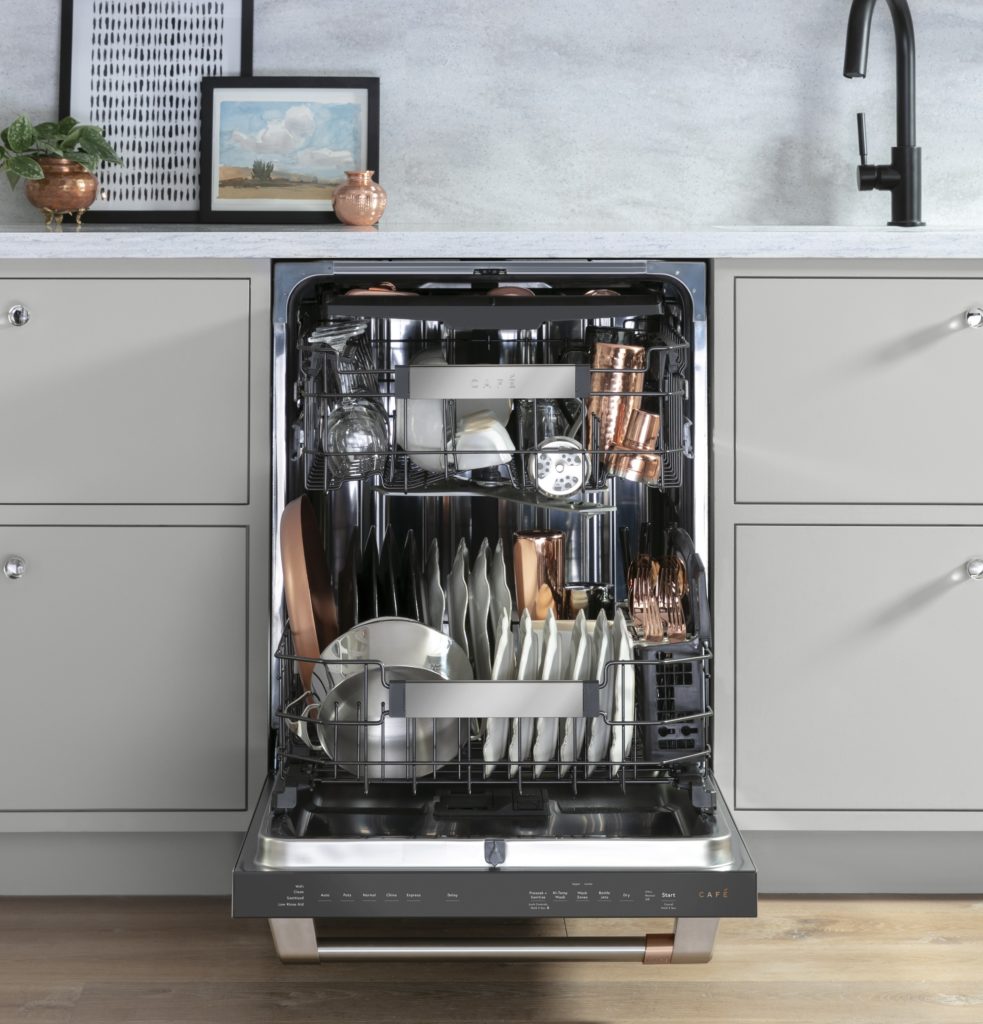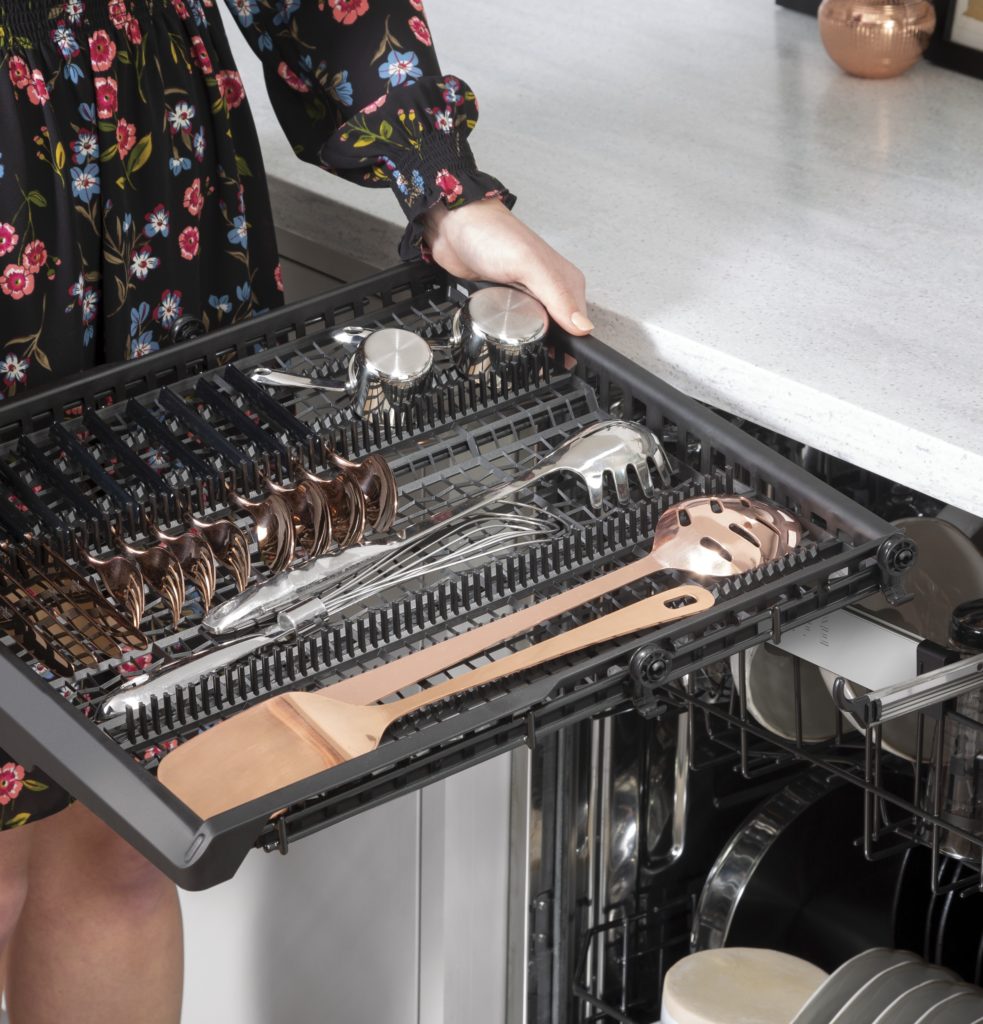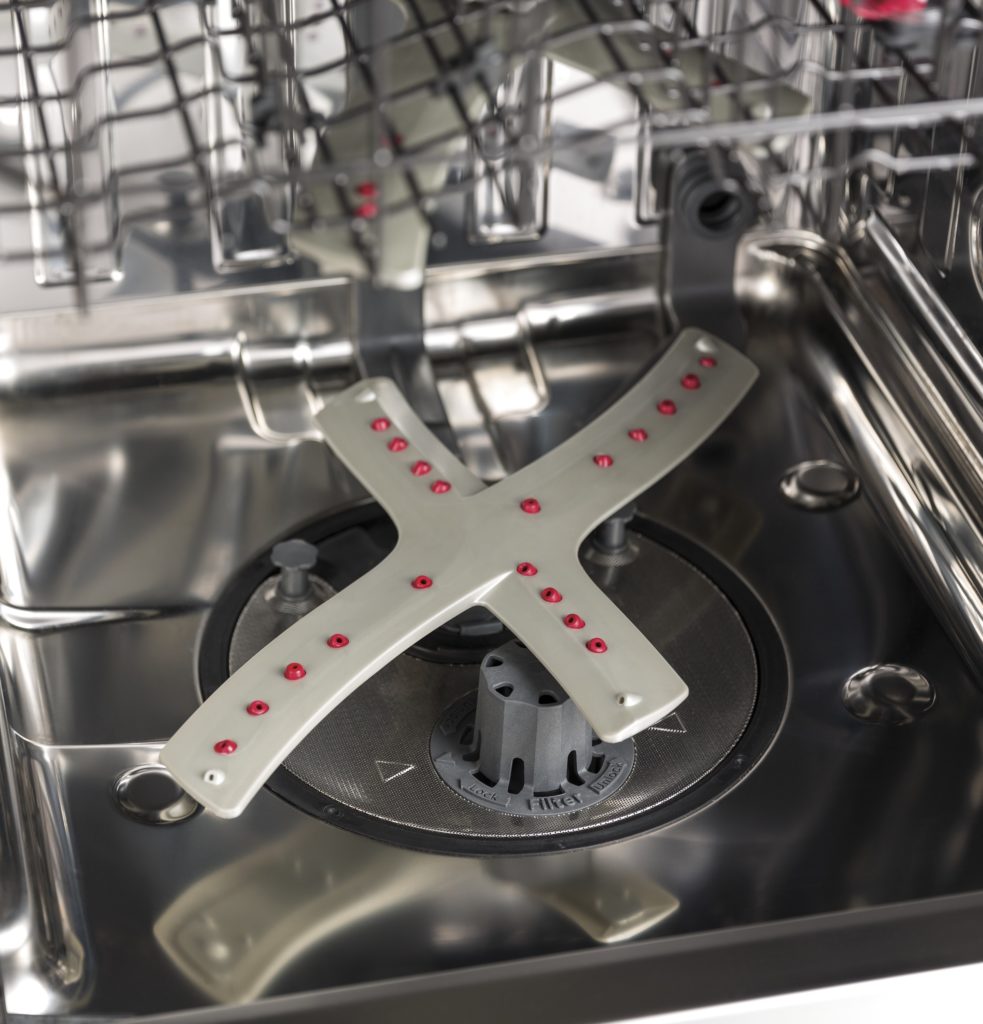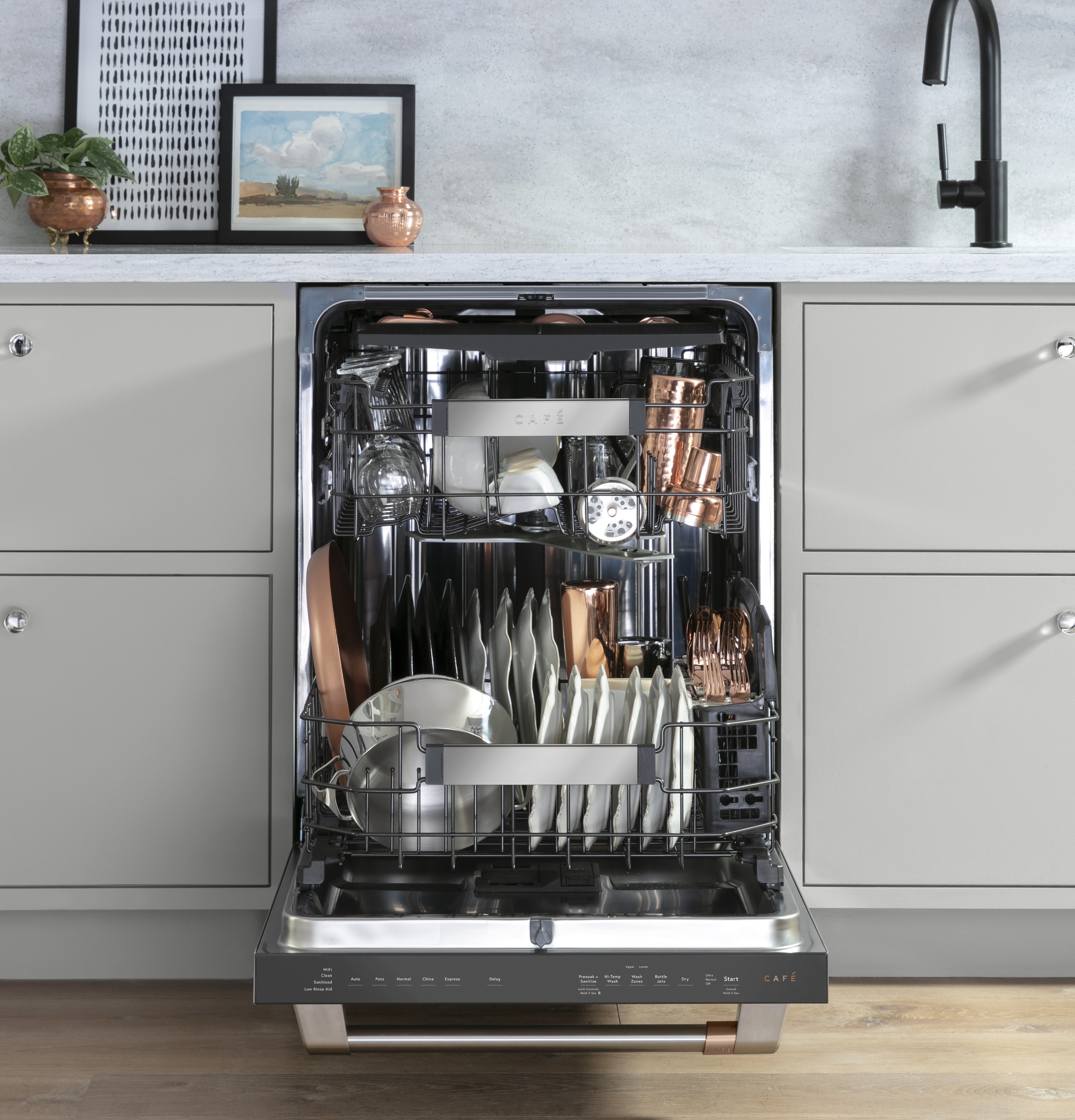
If you’re reading this, it probably means you’re looking for a new dishwasher. It’s hard to imagine life without a dishwasher. I mean, you could. It’s possible to wash all your dishes by hand… but really? Come on.
You’ve probably noticed that there are a ton of features on the market. Laser beams that shoot out of the dishwasher and onto your floor are super cool, but if you’re serious about buying a dishwasher then you need to ask yourself a few questions.
Seriously, this is Dishwasher 101.
Is It Quiet?
Everyone looking for a dishwasher wants it to be quiet. It’s the number one most requested feature, right up there with actually cleaning the dishes. With every manufacturer promising quieter and quieter machines, how can you know which one is the quietest?
Honestly, you can’t. Not really.
There’s no standard when it comes to measuring a dishwasher’s decibel rating, but there are certain rules of thumb you can count on when you’re buying a dishwasher.
- Stainless steel tubs are quieter than plastic or hybrid tubs.
- Lower advertised decibel (db) ratings will generally be quieter, but since most people can’t differentiate between 3 db anyway, don’t stress this too much.
- Some of the best dishwashers on the market are also some of the quietest, so leaning into this feature is a good shortcut when you’re shopping for a dishwasher.
What Is The Tub Made Of?
Dishwashers have 3 types of tubs: plastic, stainless steel, and a mix of both (hybrid).
When looking at dishwashers just remember that plastic tubs will be the most cost effective, and resist stains best. Stainless steel is the most durable, the quietest, the most energy-efficient and the most odour resistant. Hybrid tubs, combine both materials offering the benefits of both, but also some of the downsides too.
For more detail on dishwasher tubs, check out our previous article Which is Better? Plastic, Stainless Steel or Hybrid Dishwasher Tub?
Does it Have Load Flexibility?

In the olden days, you crammed your oversized dishes between the fixed prongs and if they didn’t snap off, you prayed the plates would clear the racks. Then when it inevitably failed, you took those dishes back out of the dishwasher and cleaned them by hand. Luckily, we don’t live in the dark ages anymore.
Today’s dishwashers have many load flexible options to make washing every type of dish easier than it’s ever been. How you load the dishwasher is going to affect how well it cleans too. And more flexibility helps there as well.
Look for options like cutlery trays, collapsing tines, and adjustable racks. Dedicated wash zones, more powerful jets and specialized nozzles help tackle stubborn soil loads and all combine to make every dish sparkle.
Is It Energy-Efficient?
You may not have heard, but cleaning a load of dishes in a full dishwasher uses less water than washing your dishes by hand. Not only are energy-efficient dishwashers better than hand washing, they’re also better than they’ve ever been. Today’s dishwashers use less energy and less water than last generation’s comparable models.
Features such as heat transfer technology reduce the need for high output warming coils. Soil and load sensors waste less water. Couple that with better filtration and more efficient detergent and you really minimize your ecological impact. And of course, saving energy helps you save money too.
If environment-friendly tops your must-have features then head over to Energy Star’s Certified Dishwasher list to find the most eco-friendly models.
How Does a Dishwasher Deal With Food Waste?

Dishwashers deal with food one of two ways; they filter it, or they grind and flush it.
Most European dishwashers feature a manual filter at the bottom of the tub, just beneath the spray arm. Heat is used to dissolve most food waste, and any leftover is trapped by the filtration system. A manual filter is easy to clean, quieter and the most energy-efficient option.
Many North American dishwashers still use some kind of hard food disposal system like a grinder to break up excess food particles and flush them down the drain. Automatic disposals are definitely neater and tidier than having to clean a dirty filter although they can also lead to more service issues.
With those five questions answered you’re off to a great start! Our Dishwasher Buying Guide has everything you need to find the perfect dishwasher. You can also check out a couple of our helpful blogs for even more information.
Isabelle, Your Appliance Expert

